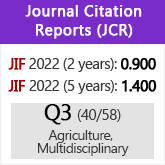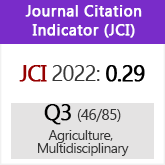A trade model to evaluate the impact of trade liberalisation on EU [European Union] tomato imports
Abstract
The complexity of the Euro-Mediterranean trade liberalisation is difficult to represent in trade models because of the range of instruments still constraining trade as well as the special characteristics of the major traded fruits and vegetables (product differentiation and seasonality). This paper proposes a trade model to assess the impact of trade liberalisation in the fresh tomato market, taking into account trade measures that are defined on a seasonal basis, such as tariff-rate quotas and entry prices. Simulations are carried out in monthly periods. The model considers imports from different sources as imperfect substitutes, following a non-linear Armington-type approach. Different policy scenarios have been run, considering various types of changes in the trade policy for tomatoes, changes that would arise from a new multilateral trade agreement. Model results indicate that, as far as EU producers are concerned, considering tomatoes as a sensitive product would be the less dramatic scenario. By contrast, entry price elimination would have noteworthy consequences on EU producers.Downloads
© CSIC. Manuscripts published in both the printed and online versions of this Journal are the property of Consejo Superior de Investigaciones Científicas, and quoting this source is a requirement for any partial or full reproduction.
All contents of this electronic edition, except where otherwise noted, are distributed under a “Creative Commons Attribution 4.0 International” (CC BY 4.0) License. You may read here the basic information and the legal text of the license. The indication of the CC BY 4.0 License must be expressly stated in this way when necessary.
Self-archiving in repositories, personal webpages or similar, of any version other than the published by the Editor, is not allowed.















